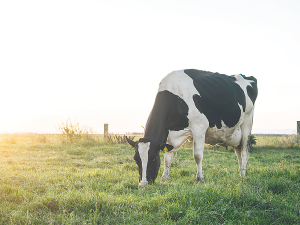Ergot Toxins: Hidden summer threat to cow health
Summer can be a tricky period on farm. Cows approach the summer period milking well, but the summer heat causes rapid changes in pasture.
 Investing in pasture and feed analysis is the most accurate way to ascertain mineral and trace element levels in your herd’s diet.
Investing in pasture and feed analysis is the most accurate way to ascertain mineral and trace element levels in your herd’s diet.
Spring brings heavy demands for our dairy cows, with calving, peak milk, and successful mating all crucial milestones for a profitable season, and all in a climate that is becoming increasingly volatile each year.
In an ideal world, our dairy herds would have access to ample amounts of high-quality pasture containing sufficient nutrients, vitamins, and minerals to drive optimum performance. However, reality is far from ideal and we need to be aware of potential mineral deficiencies presented by our pasture-based system.
Low levels of trace elements in pasture
Trace elements are commonly found to be deficient in grazing dairy cows.
Also called micro minerals, these are copper, cobalt, selenium, iodine and zinc, and all work together to play a crucial role in cow health and performance.
Low copper absorption in cows, combined with low copper content in pasture easily results in deficiency. Copper is key for proper immune development and deficiency can mean cows are more susceptible to infection.
Cobalt is required for the synthesis of vitamin B12, which is essential for energy metabolism, fibre digestion, and immunity. With our soils generally high in manganese, cobalt uptake by the plant is restricted, resulting in inadequate cobalt levels.
Selenium is vital for immunity, milk production, reproduction, and calf viability. In general, pasture tends to be low in selenium and fertilisers do not sufficiently correct this.
Iodine is essential for energy metabolism, milk production, and reproduction. Not only is pasture uptake of iodine usually low, it is also easily leached in wet spring weather.
Zinc levels are commonly low in pasture, but this trace element is required for production, reproduction, animal growth, long-term hoof health, and immunity.
Efficient mineral dosing
While dusting and water dosing is common, we know that mineral supplementation through feed systems is the most effective way of getting minerals into your cows, whether through an inline feed dispenser or mixer wagon.
It’s important to note that not one single feed provides the perfect balance of macro and micro minerals, of which adequate levels are vital for optimum production, successful mating, and pregnancy maintenance. Investing in pasture and feed analysis is the most accurate way to ascertain mineral and trace element levels in your herd’s diet, resulting in an effective mineral supplementation plan this season.
Chris Balemi is managing director of Agvance Nutrition
Former Fonterra executive Alex Turnbull has been appointed CEO to lead all five Yili Oceania Business Division companies in New Zealand.
Fonterra executive René Dedoncker is leaving the co-operative later this year to lead Australian agribusiness Elders.
Alliance Group and the Southland Stags rugby team have joined forces in a partnership that will see the the meat co-operative's farmgate brand feature on players' team kits and replica jerseys.
Fonterra's plan to expand its organic programme to the South Island is being well received by farmers, the co-op says.
Voting has started for the renewal of DairyNZ's milksolids levy.
The most successful catchment groups in NZ are those that have 'a source to sea' approach.
OPINION: A dairy version of fantasy football has been launched.
OPINION: In recent weeks beaches in Auckland, Wellington and Christchurch have been unsafe to swim in because of recent heavy…